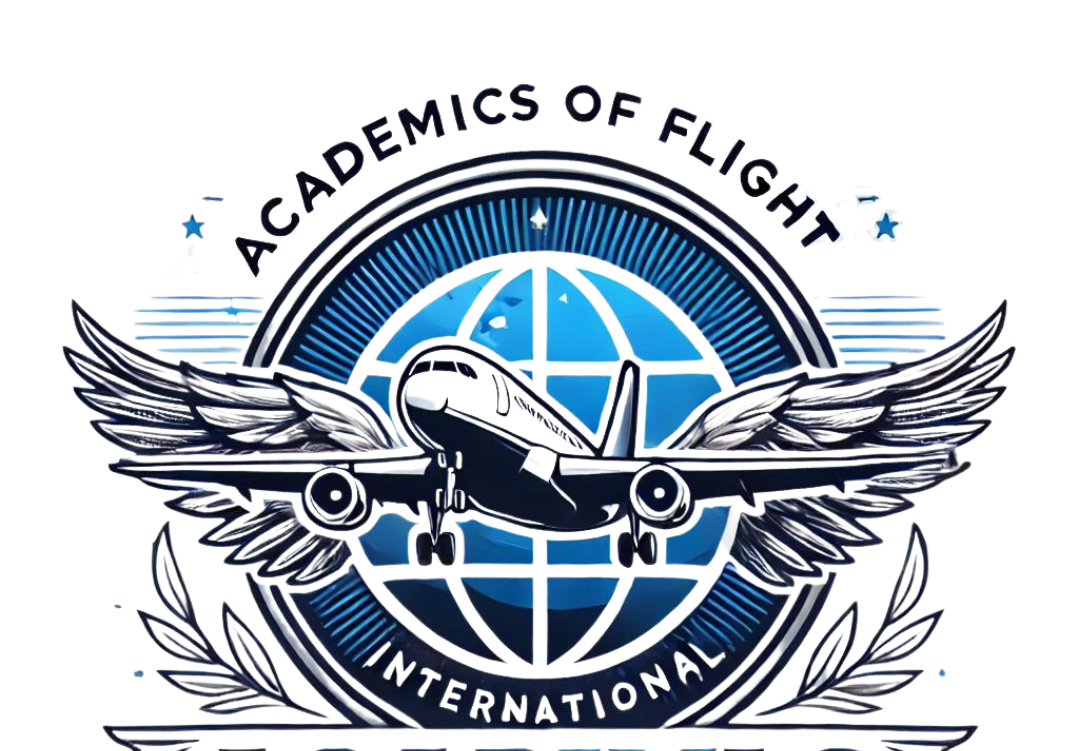The simple, proven, step-by-step blueprint
building your career in Aviation
building your career in Aviation
Starter
Flight Attendant
✔ Introduction:
Overview of the aviation industry and flight dispatching.
✔ Airplane:
Fundamentals of aircraft systems and operations.
✔ Aerodynamics:
Principles of flight and aircraft performance.
✔ Meteorology:
Understanding weather patterns and their impact on flights.
✔ Air Traffic Control Regulations:
Key regulations governing flight operations.
✔ Terminology:
Aviation-specific language and terms.
✔ Time:
Time management and scheduling in aviation.
✔ Special Passenger Handling:
Techniques for managing various passenger needs.
✔ Health & Grooming:
Standards for personal presentation and well-being.
✔ Survival:
Basic survival skills for emergency situations.
✔ Cockpit Resources Management (CRM):
Strategies for effective communication and teamwork.
✔ Preparing For Trips:
Pre-flight preparations and checklists.
✔ Practice Job Interview:
Mock interviews and interview preparation tips.
✔ Program Duration:
50 Hours
Pro
Flight Dispatcher
✔ Aviation Basics:
Introduction to the aviation industry and the role of a flight dispatcher.
✔ Flight Planning:
Detailed training on flight planning and route optimization.
✔ Aircraft Performance:
Understanding aircraft capabilities and limitations.
✔ Navigation:
Principles of air navigation and the use of navigational aids.
✔ Meteorology:
Advanced weather analysis and its impact on flight operations.
✔ Regulations:
Comprehensive study of aviation regulations and compliance.
✔ Emergency Procedures:
Handling in-flight emergencies and contingency planning.
✔ Communication:
Effective communication with pilots, air traffic control, and ground staff.
✔ Load Planning:
Weight and balance calculations for safe flight operations.
✔ Flight Monitoring:
Real-time flight tracking and operational control.
✔ Dispatch Resource Management:
Team coordination and resource management skills.
✔ Exam Preparation:
Preparation for FAA dispatcher certification exams.
✔ Program Duration:
100 hours
Premium
Private Coaching
✔ Everything in Course +
Free Book
✔ Personalized One-on-One Coaching:
Tailored guidance and mentorship throughout the program.
✔ In-Depth Flight Scenario Simulations:
Hands-on practice with realistic flight dispatch scenarios.
✔ Advanced CRM Techniques:
Enhanced communication and decision-making strategies.
✔ Extended Interview Preparation:
Comprehensive support for acing job interviews.
✔ Networking Opportunities:
Access to industry professionals and alumni network.
✔ Flexible Scheduling:
Customizable training sessions to fit your availability.
✔ Program Duration and Cost:
To be discussed with the client
Starter
Flight Attendant
✔ Introduction:
Overview of the aviation industry and flight dispatching.
✔ Airplane:
Fundamentals of aircraft systems and operations.
✔ Aerodynamics:
Principles of flight and aircraft performance.
✔ Meteorology:
Understanding weather patterns and their impact on flights.
✔ Air Traffic Control Regulations:
Key regulations governing flight operations.
✔ Terminology:
Aviation-specific language and terms.
✔ Time:
Time management and scheduling in aviation.
✔ Special Passenger Handling:
Techniques for managing various passenger needs.
✔ Health & Grooming:
Standards for personal presentation and well-being.
✔ Survival:
Basic survival skills for emergency situations.
✔ Cockpit Resources Management (CRM):
Strategies for effective communication and teamwork.
✔ Preparing For Trips:
Pre-flight preparations and checklists.
✔ Practice Job Interview:
Mock interviews and interview preparation tips.
✔ Program Duration:
50 Hours
Pro
Flight Dispatcher
✔ Aviation Basics:
Introduction to the aviation industry and the role of a flight dispatcher.
✔ Flight Planning:
Detailed training on flight planning and route optimization.
✔ Aircraft Performance:
Understanding aircraft capabilities and limitations.
✔ Navigation:
Principles of air navigation and the use of navigational aids.
✔ Meteorology:
Advanced weather analysis and its impact on flight operations.
✔ Regulations:
Comprehensive study of aviation regulations and compliance.
✔ Emergency Procedures:
Handling in-flight emergencies and contingency planning.
✔ Communication:
Effective communication with pilots, air traffic control, and ground staff.
✔ Load Planning:
Weight and balance calculations for safe flight operations.
✔ Flight Monitoring:
Real-time flight tracking and operational control.
✔ Dispatch Resource Management:
Team coordination and resource management skills.
✔ Exam Preparation:
Preparation for FAA dispatcher certification exams.
✔ Program Duration:
100 hours
Premium
Private Coaching
✔ Everything in Course +
Free Book
✔ Personalized One-on-One Coaching:
Tailored guidance and mentorship throughout the program.
✔ In-Depth Flight Scenario Simulations:
Hands-on practice with realistic flight dispatch scenarios.
✔ Advanced CRM Techniques:
Enhanced communication and decision-making strategies.
✔ Extended Interview Preparation:
Comprehensive support for acing job interviews.
✔ Networking Opportunities:
Access to industry professionals and alumni network.
✔ Flexible Scheduling:
Customizable training sessions to fit your availability.
✔ Program Duration and Cost:
To be discussed with the client
AS FEATURED IN:







